Shipping goods from China to Mersin, Turkey, is a crucial logistical activity for businesses looking to expand their market reach. Mersin, being one of Turkey’s key port cities, serves as a vital hub for importing goods. Understanding the intricacies of this shipping route can significantly impact your supply chain efficiency and overall business success.
This guide aims to provide a comprehensive overview of shipping from China to Mersin, addressing critical factors such as shipping options, cost analysis, timeframes, and practical tips. By the end of this guide, you will be equipped with the knowledge needed to make informed decisions and optimize your shipping processes.
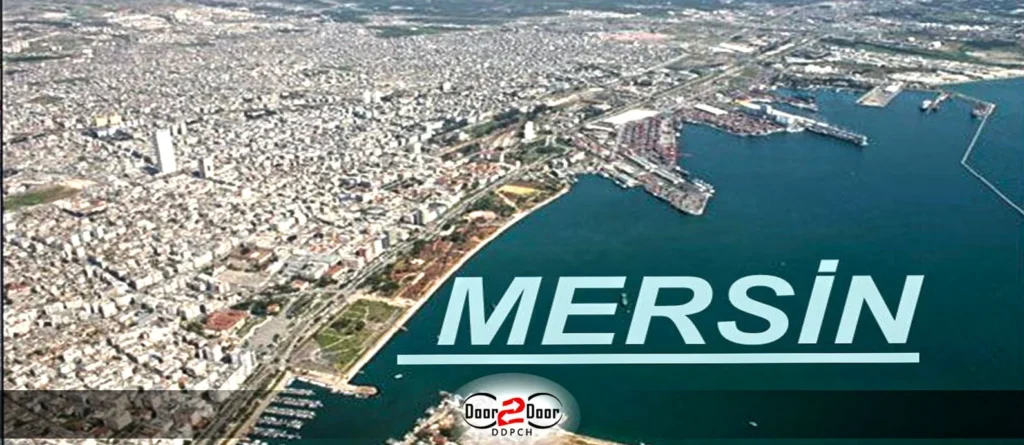
Table of Contents
1. Understanding Shipping Options
A. Sea Freight
- FCL (Full Container Load)
Full Container Load (FCL) is a shipping method where an entire container is used exclusively for your cargo. This option is ideal for large shipments, offering cost savings per unit volume and better control over the shipping process. - LCL (Less than Container Load)
Less than Container Load (LCL) allows multiple shippers to share container space. It’s suitable for smaller shipments that do not require a full container. While cost per unit volume may be higher than FCL, LCL provides flexibility and cost-efficiency for smaller loads.
B. Air Freight
- Comparing Costs and Timeframes
Air freight is significantly faster than sea freight but comes at a higher cost. It’s ideal for urgent shipments or high-value goods that require expedited delivery. - When to Choose Air Freight
Consider air freight when time is of the essence, such as for perishable goods, high-demand items, or products with tight delivery deadlines. The cost premium is justified by the speed and reliability of this shipping method.
C. Express Shipping
- Major Courier Services
Express shipping through major courier services (e.g., DHL, FedEx, UPS) offers the fastest delivery options. These services are well-suited for small, high-value, or time-sensitive shipments. - Costs and Speed
Express shipping is the most expensive option but provides door-to-door service with delivery times ranging from 1 to 5 days, depending on the destination and service level chosen.
D. DDP (Delivered Duty Paid) Shipping
- What is DDP?
Delivered Duty Paid (DDP) is a shipping arrangement where the seller assumes all risks and costs associated with delivering goods to the buyer’s specified location. This includes transportation, duties, and taxes. - Advantages and Considerations
DDP offers a hassle-free solution for buyers, as the seller handles customs clearance and other formalities. However, it can be more expensive due to the additional responsibilities borne by the seller. It’s essential to negotiate terms and understand the total cost implications.
2. Cost Analysis
A. Factors Affecting Shipping Costs
- Type of Goods
Different types of goods attract varying shipping rates. For instance, hazardous materials, oversized items, or fragile goods may incur additional handling charges. - Volume and Weight
Shipping costs are heavily influenced by the volume and weight of your cargo. Carriers often use volumetric weight calculations to determine pricing, especially for air freight. - Shipping Method
The chosen shipping method (sea freight, air freight, express shipping) directly impacts costs. Generally, sea freight is the most economical for large shipments, while air freight and express shipping come at a premium. - Incoterms
International Commercial Terms (Incoterms) define the responsibilities of buyers and sellers in international transactions. Terms like FOB (Free on Board), CIF (Cost, Insurance, and Freight), and DDP (Delivered Duty Paid) influence the allocation of costs and risks.
B. Pricing Breakdown
- Shipping Rates by Sea
Sea freight rates are typically calculated based on container size (e.g., 20-foot, 40-foot containers) and shipping route. Additional fees may include port charges, handling fees, and documentation costs. - Shipping Rates by Air
Air freight rates are determined by weight and volume. Airlines may apply surcharges for fuel, security, and peak season demand. It’s crucial to obtain detailed quotes to understand the total cost. - Additional Fees (Customs, Insurance, etc.)
Beyond base shipping rates, additional fees such as customs duties, insurance, warehousing, and terminal handling charges can significantly impact the total shipping cost. It’s advisable to factor these into your budget planning.
C. Tips for Reducing Shipping Costs
- Consolidate Shipments
Consolidating multiple shipments into a single container can achieve economies of scale, reducing per-unit shipping costs. Work with your freight forwarder to plan and optimize shipment schedules. - Choose the Right Shipping Partner
Selecting a reputable and experienced freight forwarder like Dantful International Logistics can provide competitive rates, reliable service, and valuable guidance on cost-saving strategies. - Negotiate Rates
Don’t hesitate to negotiate with carriers and freight forwarders. Building long-term relationships and committing to regular volumes can often secure better rates and terms.
3. Timeframes and Delivery Schedules
A. Estimated Transit Times
- Sea Freight Transit Times
Sea freight from China to Mersin typically takes between 20 to 35 days, depending on the specific ports of departure and arrival as well as the shipping route. Variations in transit time can also be influenced by the shipping line and seasonal factors. - Air Freight Transit Times
Air freight is considerably faster, with transit times ranging from 3 to 7 days. The exact duration depends on factors such as flight availability, consolidation requirements, and customs clearance procedures at both the departure and arrival airports. - Express Shipping Transit Times
Express shipping offers the quickest delivery times, typically between 1 to 5 days. Major courier services like DHL, FedEx, and UPS provide reliable express options that deliver goods swiftly to Mersin, with some services even offering next-day delivery.
B. Factors Affecting Transit Times
- Weather Conditions
Extreme weather conditions can significantly impact transit times, particularly for sea freight. Storms, typhoons, and heavy rain can cause delays in sailing schedules and port operations. - Port Congestion
High traffic volumes at major ports can lead to congestion, resulting in delays in loading and unloading cargo. Peak seasons and holidays often exacerbate port congestion issues. - Customs Clearance
Efficient customs clearance is crucial for timely delivery. Delays can occur due to incomplete or incorrect documentation, inspections, and compliance issues. Working with an experienced freight forwarder can help mitigate these risks.
C. How to Track and Manage Shipments
- Tracking Tools and Software
Utilize advanced tracking tools and software provided by your freight forwarder or shipping carrier. These tools offer real-time updates on the location and status of your shipment, enabling you to proactively manage any potential delays. - Communication with Freight Forwarder
Maintaining open lines of communication with your freight forwarder is essential for managing shipments effectively. Regular updates and proactive problem-solving can help ensure your cargo reaches Mersin on time.
4. Step-by-Step Shipping Process
A. Preparing Your Shipment
- Documentation Requirements
Accurate and complete documentation is critical for international shipping. Key documents include the commercial invoice, packing list, bill of lading, and certificates of origin. Ensure all paperwork is correctly filled out to avoid customs delays. - Packaging Guidelines
Proper packaging protects your goods during transit. Use sturdy materials, appropriate cushioning, and secure sealing. Label packages clearly with shipping information and any special handling instructions.
B. Booking and Coordination
- Selecting a Freight Forwarder
Choose a reputable freight forwarder with experience in shipping from China to Mersin. A reliable partner like Dantful International Logistics can streamline the process, provide competitive rates, and offer expert advice. - Scheduling Pickup and Delivery
Coordinate with your freight forwarder to schedule the pickup of your goods from the origin point in China. Ensure clear communication regarding delivery timelines and any special requirements.
C. Customs Clearance
- Required Documentation
Customs clearance requires several documents, including the commercial invoice, bill of lading, packing list, and any relevant import licenses or permits. Work with your freight forwarder to ensure all documentation is in order. - Duties and Taxes
Import duties and taxes vary based on the type of goods and their declared value. Understand the applicable tariffs and ensure timely payment to avoid clearance delays.
D. Delivery and Final Steps
- Receiving the Shipment
Upon arrival in Mersin, coordinate with your freight forwarder or logistics partner to arrange for the final delivery to your specified location. Verify the condition and quantity of goods received. - Inspecting for Damages
Thoroughly inspect the received goods for any damages or discrepancies. Document any issues and report them promptly to your freight forwarder or carrier to initiate claims if necessary.
Read More:
- LCL and shipping from China to UAE
- Cheapest shipping from China to Saudi Arabia
- The most comprehensive introduction to shipping from China to the UAE in 2023
- Shipping from China to Jeddah 2024
- Shipping from China to Hanoi 2024
5. Choosing the Right Freight Forwarder
A. What to Look for in a Freight Forwarder
- Experience and Expertise
Select a freight forwarder with extensive experience in handling shipments from China to Mersin. Their expertise can help navigate complex logistics and customs requirements, ensuring a smooth shipping process. - Range of Services
A comprehensive range of services, including sea and air freight, customs clearance, warehousing, and distribution, can provide a one-stop solution for your logistics needs. Ensure your freight forwarder offers the necessary services to meet your specific requirements. - Customer Support
Reliable customer support is essential for addressing any issues or concerns that may arise during the shipping process. Choose a freight forwarder with a responsive and knowledgeable support team.
B. Recommended Freight Forwarder: Dantful International Logistics
- Overview of Services
Dantful International Logistics provides a full suite of logistics services, specializing in international shipping, customs clearance, warehousing, and supply chain management. Their expertise in shipping from China to Mersin ensures efficient and cost-effective solutions. - Benefits of Choosing Dantful
- Highly Professional Service: Dantful’s experienced team offers personalized service tailored to your shipping needs.
- Cost-effective Solutions: Competitive rates and efficient logistics strategies help reduce overall shipping costs.
- High-quality Service: Commitment to excellence and attention to detail ensure reliable and timely delivery.
6. Common Challenges and How to Overcome Them
A. Delays and How to Mitigate Them
- Cause of Delays
Delays can occur due to weather conditions, port congestion, customs issues, or incorrect documentation. These factors can disrupt the smooth flow of your supply chain and lead to increased costs and missed deadlines. - Mitigation Strategies
- Plan Ahead: Allow extra time for potential delays, especially during peak seasons.
- Choose Reliable Partners: Work with reputable freight forwarders and carriers with a track record of timely deliveries.
- Ensure Proper Documentation: Double-check all paperwork to ensure it is complete and accurate.
- Communication: Keep open lines of communication with your freight forwarder to stay updated on any potential issues.
B. Handling Damaged Goods
- Common Causes of Damage
Damage can occur during loading, unloading, or transit due to improper handling, inadequate packaging, or accidents. - Prevention and Solutions
- Quality Packaging: Use durable and appropriate packaging materials to protect goods.
- Insurance: Purchase comprehensive cargo insurance to cover potential damages.
- Inspection Protocols: Inspect goods upon arrival and document any damages immediately. Report issues to your freight forwarder or carrier to initiate claims.
C. Navigating Customs Issues
- Common Customs Problems
Delays and fines can arise from incomplete or incorrect documentation, non-compliance with import regulations, or discrepancies in declared values. - Solutions
- Accurate Documentation: Ensure all required documents are accurate and complete.
- Stay Informed: Keep up-to-date with the latest import regulations and compliance requirements for both China and Turkey.
- Use Experienced Brokers: Employ customs brokers or freight forwarders with expertise in handling customs clearance to navigate complexities efficiently.
FAQs
Common Questions about Shipping from China to Mersin
- What is the best shipping method for my goods?
The best shipping method depends on factors such as the type of goods, urgency, and budget. Sea freight is cost-effective for large shipments, while air freight is suitable for urgent or high-value items.
- How can I reduce shipping costs?
Consolidate shipments, choose reliable freight forwarders, negotiate rates, and ensure accurate documentation to avoid additional fees.
- What documents are required for customs clearance?
Key documents include the commercial invoice, packing list, bill of lading, and certificates of origin. Additional documents may be required based on the type of goods and destination regulations.
- How do I track my shipment?
Use tracking tools and software provided by your freight forwarder or carrier. Maintain communication with your freight forwarder for real-time updates.
- What should I do if my goods are damaged during transit?
Inspect the goods upon arrival, document any damages, and report them to your freight forwarder or carrier. Purchase cargo insurance to cover potential losses.
References
- Dantful International Logistics: Dantful International Logistics
- Incoterms Explained: International Chamber of Commerce (ICC) – Incoterms
- Customs Regulations and Procedures: Turkish Ministry of Trade – Turkish Customs
- Freight Rates and Trends: Freightos – Freightos
- Shipping Guidelines: World Shipping Council – World Shipping Council

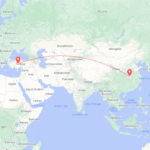

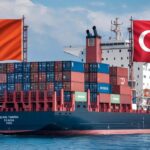

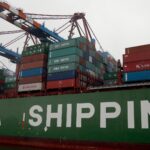





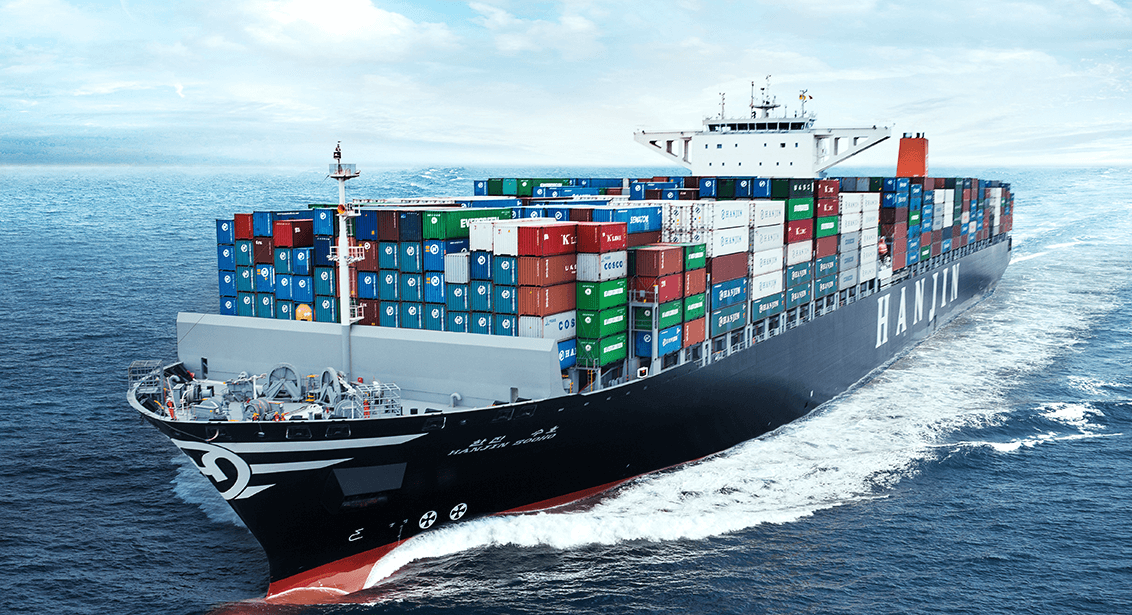
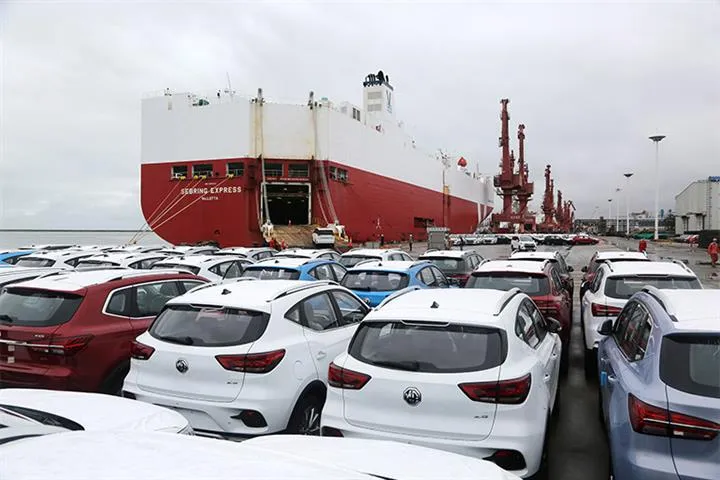

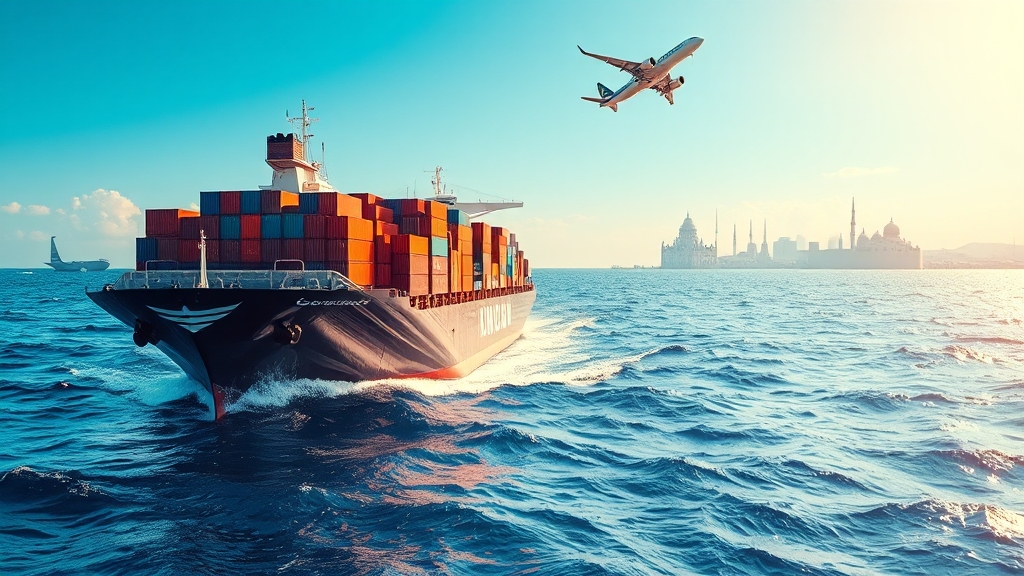





 Afrikaans
Afrikaans Shqip
Shqip አማርኛ
አማርኛ العربية
العربية Հայերեն
Հայերեն Azərbaycan dili
Azərbaycan dili Euskara
Euskara Беларуская мова
Беларуская мова বাংলা
বাংলা Bosanski
Bosanski Български
Български Català
Català Cebuano
Cebuano Chichewa
Chichewa 简体中文
简体中文 繁體中文
繁體中文 Corsu
Corsu Hrvatski
Hrvatski Čeština
Čeština Dansk
Dansk Nederlands
Nederlands English
English Esperanto
Esperanto Eesti
Eesti Filipino
Filipino Suomi
Suomi Français
Français Galego
Galego ქართული
ქართული Deutsch
Deutsch Ελληνικά
Ελληνικά Kreyol ayisyen
Kreyol ayisyen Harshen Hausa
Harshen Hausa Ōlelo Hawaiʻi
Ōlelo Hawaiʻi עִבְרִית
עִבְרִית हिन्दी
हिन्दी Hmong
Hmong Magyar
Magyar Íslenska
Íslenska Igbo
Igbo Bahasa Indonesia
Bahasa Indonesia Gaeilge
Gaeilge Italiano
Italiano 日本語
日本語 Basa Jawa
Basa Jawa ಕನ್ನಡ
ಕನ್ನಡ Қазақ тілі
Қазақ тілі ភាសាខ្មែរ
ភាសាខ្មែរ 한국어
한국어 كوردی
كوردی Кыргызча
Кыргызча ພາສາລາວ
ພາສາລາວ Latin
Latin Latviešu valoda
Latviešu valoda Lietuvių kalba
Lietuvių kalba Lëtzebuergesch
Lëtzebuergesch Македонски јазик
Македонски јазик Malagasy
Malagasy Bahasa Melayu
Bahasa Melayu മലയാളം
മലയാളം Maltese
Maltese Te Reo Māori
Te Reo Māori मराठी
मराठी Монгол
Монгол ဗမာစာ
ဗမာစာ नेपाली
नेपाली Norsk bokmål
Norsk bokmål پښتو
پښتو فارسی
فارسی Polski
Polski Português
Português ਪੰਜਾਬੀ
ਪੰਜਾਬੀ Română
Română Русский
Русский Samoan
Samoan Gàidhlig
Gàidhlig Српски језик
Српски језик Sesotho
Sesotho Shona
Shona سنڌي
سنڌي සිංහල
සිංහල Slovenčina
Slovenčina Slovenščina
Slovenščina Afsoomaali
Afsoomaali Español
Español Basa Sunda
Basa Sunda Kiswahili
Kiswahili Svenska
Svenska Тоҷикӣ
Тоҷикӣ தமிழ்
தமிழ் తెలుగు
తెలుగు ไทย
ไทย Türkçe
Türkçe Українська
Українська اردو
اردو O‘zbekcha
O‘zbekcha Tiếng Việt
Tiếng Việt Cymraeg
Cymraeg יידיש
יידיש Yorùbá
Yorùbá Zulu
Zulu